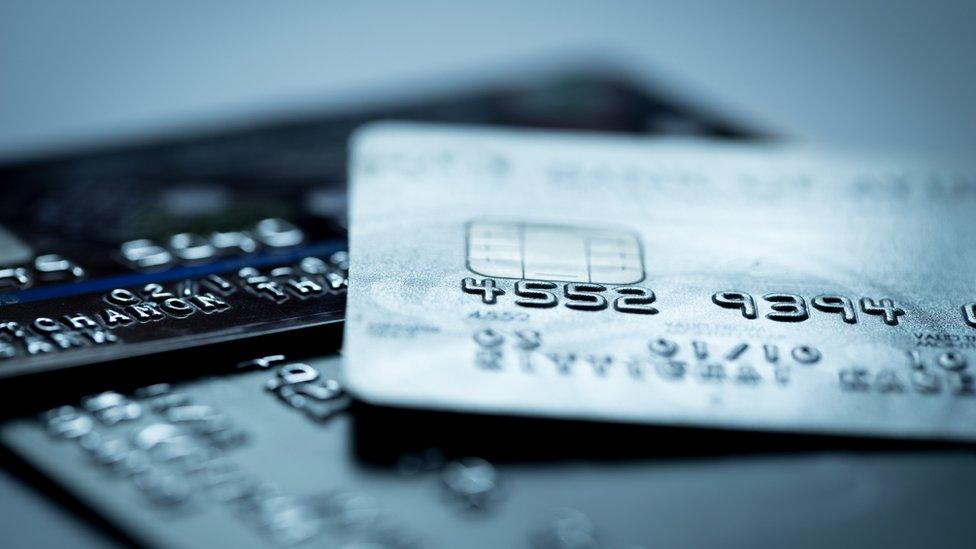Q&A: How will the card surcharge ban work in practice?
- Published

Charging more to use a credit or debit card will become illegal from 13 January 2018. But that leaves lots of unanswered questions. Will prices go up to compensate? Will minimum charges for using a card in pubs or shops also be against the rules? Here are some of the answers:

What businesses will be affected?
The directive - known as the Payment Services Directive (PSD2), external - will make it illegal for any business to charge extra for using a debit or credit card in the EU. The worst offenders at the moment tend to be airlines, theatre and concert booking sites, take-away food apps, local councils, HMRC and the Driver and Vehicle Licensing Agency (DVLA). All will have to change their payment policies.

Aren't card charges already illegal?
No. But under the Consumer Rights Act, external, businesses can only pass on charges that genuinely reflect their costs. That means the amount that the bank charges them to process a credit or debit card payment. Typically, that is about 10p or 20p for debit cards, or about 0.6% of the transaction cost for a credit card. However, banks tend to charge small businesses much higher rates, so they have been allowed to charge customers accordingly.


Will prices go up as a result?
Businesses argue that they do face extra charges when someone pays by credit or debit card. British retailers spent some £800m on such charges last year, even though the fees have been previously capped by the EU. So it is likely that firms may well put up prices. However, the Treasury hopes they will be discouraged from doing so, as their headline prices will become more transparent.

What about minimum charges for using a card?
Because businesses have to pay the bank when a customer uses a card, many put a minimum charge in place. Some small shops or pubs have a £5 or £10 minimum spend before they will accept a card. This will not be illegal under the new directive, so expect it to continue. However, as consumers switch away from using cash, many retailers may not want to risk losing their business.


How will the system be policed?
It will be up to Trading Standards officers at local authorities to receive complaints about any businesses who continue to impose card surcharges after 13 January 2018. However, they have limited resources. For that reason, many small shops may have got away with card surcharges under the current rules.

As this comes from an EU Directive, will it still be law after 2019?
This directive has already been incorporated into UK law, following a vote in parliament in March. It will therefore remain law after March 2019, when the UK leaves the EU. However, as with all law, it could in theory be repealed at some point in the future.